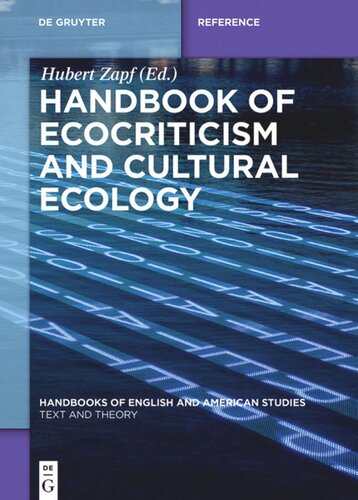

Most ebook files are in PDF format, so you can easily read them using various software such as Foxit Reader or directly on the Google Chrome browser.
Some ebook files are released by publishers in other formats such as .awz, .mobi, .epub, .fb2, etc. You may need to install specific software to read these formats on mobile/PC, such as Calibre.
Please read the tutorial at this link: https://ebookbell.com/faq
We offer FREE conversion to the popular formats you request; however, this may take some time. Therefore, right after payment, please email us, and we will try to provide the service as quickly as possible.
For some exceptional file formats or broken links (if any), please refrain from opening any disputes. Instead, email us first, and we will try to assist within a maximum of 6 hours.
EbookBell Team

4.7
26 reviewsEcocriticism has emerged as one of the most fascinating and rapidly growing fields of recent literary and cultural studies. From its regional origins in late-twentieth-century Anglo-American academia, it has become a worldwide phenomenon, which involves a decidedly transdisciplinary and transnational paradigm that promises to return a new sense of relevance to research and teaching in the humanities. A distinctive feature of the present handbook in comparison with other survey volumes is the combination of ecocriticism with cultural ecology, reflecting an emphasis on the cultural transformation of ecological processes and on the crucial role of literature, art, and other forms of cultural creativity for the evolution of societies towards sustainable futures. In state-of-the-art contributions by leading international scholars in the field, this handbook maps some of the most important developments in contemporary ecocritical thought. It introduces key theoretical concepts, issues, and directions of ecocriticism and cultural ecology and demonstrates their relevance for the analysis of texts and other cultural phenomena.